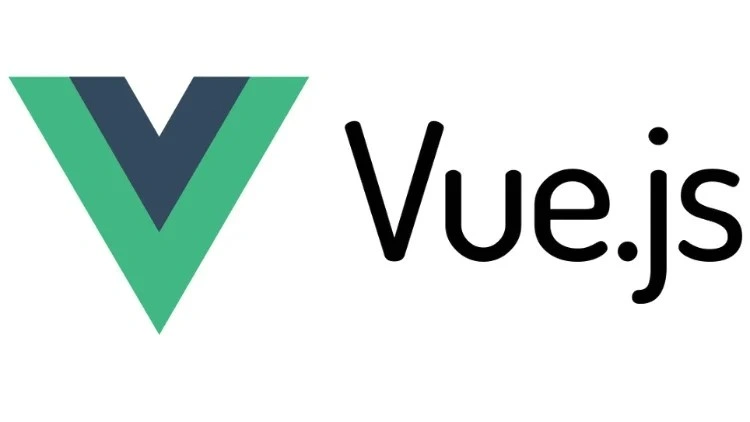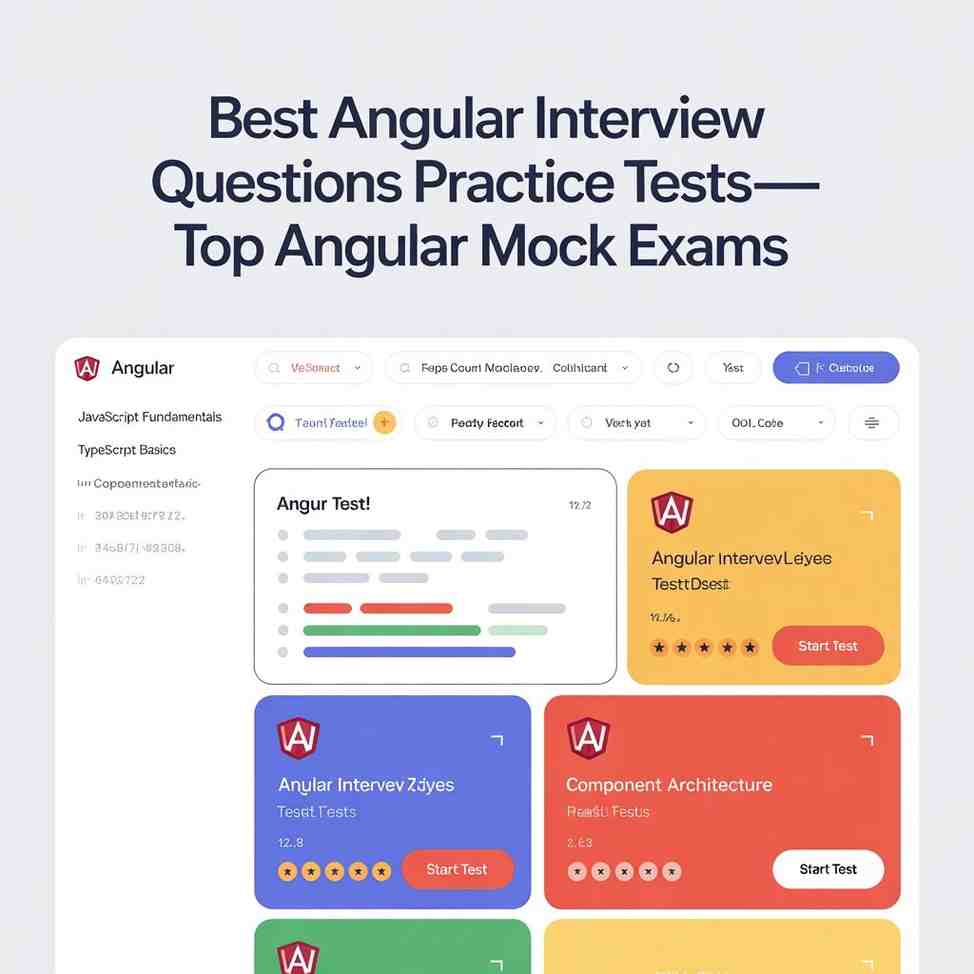Introduction
I’ll never forget my first Vue.js interview. The recruiter leaned back, grinned, and said, “Fix this component—it’s not updating.” My palms got sweaty, and I fumbled. Vue.js, the slick framework behind apps for companies like Alibaba, is a developer’s dream with 1.5 million weekly downloads on npm. But here’s the kicker: 90% of developers crash and burn on tricky Vue.js practice test questions in interviews or coding tests, tripped up by sneaky details or just not enough practice.
This blog’s throwing down a gauntlet: five Vue.js practice test questions that stump most folks, with answers, tips, and a few stories from my own coding rollercoaster. I’ve been in the trenches, and I’m here to help you boost your Vue.js interview skills and beat the odds. Whether you’re chasing a job, a cert, or just want to flex your skills, these questions will push you. Ready to see if you’re in the top 10%? Let’s roll!
Why These Questions Are Such a Challenge
Vue.js is like your favorite coffee shop—cozy and approachable, but the menu’s got some tricky specials. Vue.js practice test questions aren’t just about knowing the basics; they test how you handle curveballs like:
- Reactivity quirks that sneak up on you
- Vuex rules that demand precision
- Performance tweaks for real-world apps
- Debugging under pressure
I learned this the hard way. A test once asked me to fix a Vuex store, and I blanked because I hadn’t practiced enough. That sting fueled my mission to conquer difficult Vue.js test questions, and now I’m sharing the ones that separate the pros from the pack. Think of them as your coding boot camp—tough, but they’ll make you stronger.
5 Vue.js Practice Test Questions That Trip Up 90%
1. What’s the Deal with Vue.js Lifecycle Hooks?
Question: Explain Vue.js instance lifecycle hooks and give an example of when to use created vs. mounted.
Why It’s a Stumper: Lifecycle hooks sound straightforward, but their real-world use can be a head-scratcher. I once flubbed a question because I forgot when the DOM is actually accessible.
The Scoop: Every Vue.js component goes through stages—creation, mounting, updating, and destruction. Two big hooks are:
- Created: Fires after the component’s born but before it hits the DOM. Great for setting up data or grabbing stuff from an API.
- Mounted: Kicks in once the component’s fully rendered in the DOM. Perfect for messing with DOM elements or hooking up libraries like Chart.js.
Code Example:
export default {
data() {
return { message: '' };
},
created() {
// Grab some data before the DOM shows up
this.message = 'Loaded some cool data!';
},
mounted() {
// Play with the DOM
console.log(this.$el); // Spits out the component’s root DOM element
}
};
Hack: Use created for quick setup tasks and mounted when you need to touch the DOM. Try writing a simple component using both to get the timing down pat.
2. Options API vs. Composition API: What’s the Difference?
Question: Compare the Options API and Composition API in Vue 3, with pros and cons.
Why It’s Tough: Vue 3’s Composition API is a total game-changer, but if you’re cozy with the Options API, it’s like learning to drive stick after years of automatic. I struggled with this one until I built a project using both.
The Breakdown:
- Options API: Organizes code into neat buckets like data, methods, and computed. It’s beginner-friendly but can get messy in big apps.
- Composition API: Uses a setup() function for more flexible, reusable code. It’s a lifesaver for complex projects but takes time to wrap your head around.
Code Example (Composition API):
import { ref, computed } from 'vue';
export default {
setup() {
const count = ref(0);
const doubled = computed(() => count.value * 2);
return { count, doubled };
}
};
Hack: Get comfy with ref and reactive in the Composition API. Try rewriting an Options API component in Composition API to see the difference.
3. How Do You Share Data Between Components?
Question: Name three ways to pass data between Vue.js components, with examples.
Why It’s Tricky: Component communication is the backbone of Vue.js apps, but it’s easy to miss subtle gotchas like prop drilling. I once spent hours debugging an event emission that went nowhere.
The Rundown:
- Props: Send data from parent to child.
- Custom Events: Let the child talk back to the parent.
- Vuex: A centralized store for managing state across big apps.
Code Example (Props and Events):
// Parent Component
export default {
data() {
return { parentMessage: 'Hey from the parent!' };
},
methods: {
handleUpdate(value) {
console.log(value); // Prints the child’s message
}
}
};
// Child Component
<button>Click me</button>
export default {
props: ['message']
};
Hack: Build a tiny app with parent-child components to nail props and events. For Vuex, start with a simple counter to grasp state changes.
4. How Do You Make Vue.js SEO-Friendly?
Question: Explain how to optimize a Vue.js SPA for SEO, including specific techniques.
Why It’s a Headache: Single-page apps (SPAs) are tough for search engines to crawl since they render on the client side. I learned this the hard way when my portfolio site tanked in Google rankings.
The Lowdown:
- Server-Side Rendering (SSR): Use Nuxt.js to render pages on the server so Google can index them.
- Prerendering: Generate static HTML for smaller sites.
- Meta Tags: Manage SEO tags with vue-meta or Nuxt.js.
- Clean URLs: Skip hashtag URLs with Vue Router.
Code Example (Nuxt.js Meta Tags):
export default {
head() {
return {
title: 'My Awesome Vue App',
meta: [
{ hid: 'description', name: 'description', content: 'A Vue.js SPA built for SEO success' }
]
};
}
};
Hack: Spin up a Nuxt.js project and play with SSR. Check your site with Google’s URL Inspection Tool to make sure it’s crawlable.
5. How Does Vuex Handle State Management?
Question: Explain how Vuex manages state in a Vue.js app, with an example of a mutation and action.
Why It’s Confusing: Vuex’s strict rules—like mutations needing to be synchronous—trip people up. I once broke an app because I tried an async mutation. Oops.
The Breakdown: Vuex keeps state in a central store with:
- State: Your app’s single source of truth.
- Mutations: Synchronous updates to the state.
- Actions: Handle async stuff and trigger mutations.
Code Example:
// store/index.js
export const state = () => ({
count: 0
});
export const mutations = {
increment(state) {
state.count++;
}
};
export const actions = {
asyncIncrement({ commit }) {
setTimeout(() => {
commit('increment');
}, 1000);
}
};
// Component
this.$store.dispatch('asyncIncrement');
Hack: Create a small Vuex store with a counter to practice mutations and actions. Always keep mutations synchronous to avoid headaches.
How to Beat the 90% Fail Rate
These challenging Vue.js coding questions are tough, but here’s how I prep to win:
Fake the Pressure: Set a 10-minute timer per question to mimic tests.
Talk It Out: Explain your code to a friend (or your dog) to get clear.
Build Stuff: Code a small app, like a task tracker, to use what you learn.
Learn from Flubs: I bombed a Vuex question once—studying mutations fixed it.
Grab Resources: Gururo’s Vue.js practice tests are great for extra reps.
My Story: My buddy Priya practiced tricky Vue.js questions for weeks. In her interview, she nailed a performance optimization question and landed a gig at a cool startup. Practice makes you unstoppable!
Traps to Watch Out For
I’ve stumbled plenty. Here’s how to avoid the same:
Reactivity Snafus: Stick to push or splice for arrays—reassigning breaks things.
Vuex Goofs: Only mutate state in mutations, not actions.
Routing Hiccups: Check those slashes and history mode every time.
Fun Tidbit: Vue.js started as Evan You’s passion project in 2014, inspired by Angular but built to be lighter. Now it’s a dev superstar!
Extra Goodies for Your Journey
Books:
- Vue.js: Up and Running by Callum Macrae—great for all levels.
- Full-Stack Vue.js 2 and Laravel by Anthony Gore for deeper dives.
Tools:
- Vue DevTools for debugging like a pro.
- Vite for speedy Vue.js builds.
Websites:
- Vue.js Docs (vuejs.org) for the real deal.
- Gururo.com for Best practice Tests.
Communities:
- Vue.js Developers on Facebook.
- r/vuejs on Reddit for geeky chats.
Wrapping It Up
Joining the 10% who ace these Vue.js practice test questions is totally doable. These five challenging Vue.js coding questions—from reactivity traps to router fixes—are your chance to level up. Practice them, learn from your mistakes, and code something real to make it stick. Your next interview or test is your shot to stand out.
Wanna prove you’re in the top 10%? Tackle one question, code it, and tell a friend how you did. As one coder I know says, “The best devs are forged in the toughest bugs.” Keep at it, and you’ll crush it. Share your trickiest question in the comments or tweet me—I’m all in for cheering you on!
Ace your Vue.js practice test questions with Gururo’s expertly crafted practice tests—realistic challenges and clear explanations to skyrocket your Vue.js interview skills!
FAQs
What makes Vue.js practice test questions so tough?
They test tricky areas like reactivity, Vuex, and performance optimization.
How can difficult Vue.js test questions improve my Vue.js interview skills?
They sharpen your problem-solving for real interview challenges.
Are there resources for Vue.js practice questions for interviews?
Yes, Gururo offers Vue.js practice questions for interviews to prep.
How to pass Vue.js practice tests effectively?
Study Vuex and routing, practice with Gururo’s Vue.js practice tests.
What do challenging Vue.js coding questions cover?
Reactivity, Vuex errors, and optimization are key challenging Vue.js coding questions.
Can Vue.js test questions with solutions boost my skills?
Absolutely, they clarify mistakes and build Vue.js interview skills

















